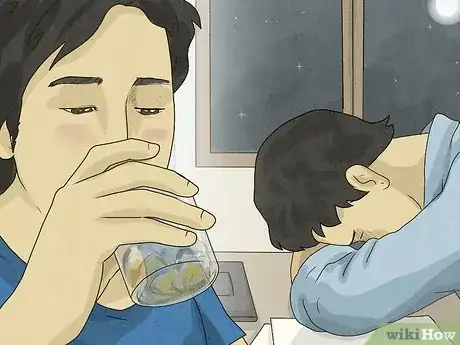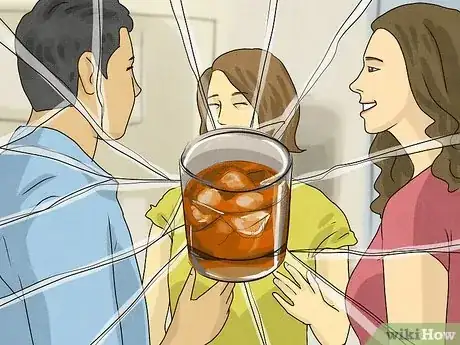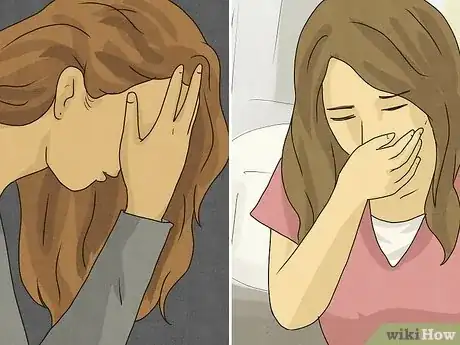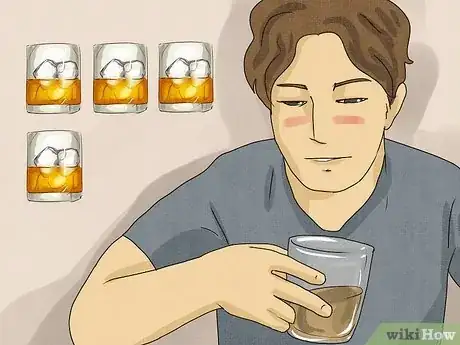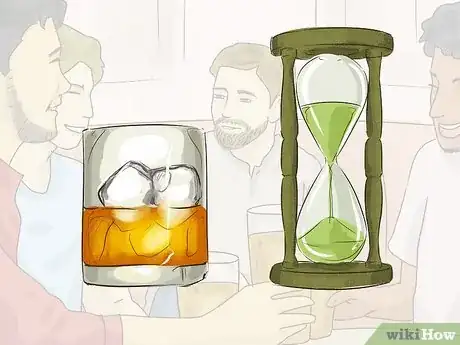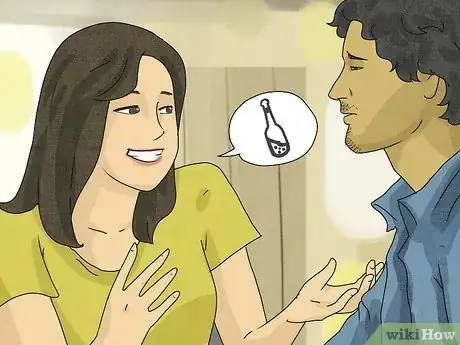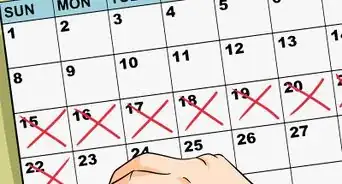This article was co-authored by Lauren Urban, LCSW and by wikiHow staff writer, Caroline Heiderscheit. Lauren Urban is a licensed psychotherapist in Brooklyn, New York, with over 13 years of therapy experience working with children, families, couples, and individuals. She received her Masters in Social Work from Hunter College in 2006, and specializes in working with the LGBTQIA community and with clients in recovery or considering recovery for drug and alcohol use.
This article has been viewed 5,434 times.
After a while, you might start to notice that your partner's relationship with alcohol just doesn't quite sit right with you. You may have noticed little things that raise red flags and even leave you wondering whether or not you're dating an alcoholic. Luckily, the signs of alcoholism can be easy to identify if you know what to look for. When someone faces addiction, it can also put pressure on the people around them. If your partner's relationship with alcohol is hurting your mental health, you're not alone; be sure to reach out to your loved ones for support. Below, we've outlined some signs and symptoms to help you tell if you're dating an alcoholic.
Steps
Expert Q&A
-
QuestionHow can I get my partner to stop drinking?
 Lauren Urban, LCSWLauren Urban is a licensed psychotherapist in Brooklyn, New York, with over 13 years of therapy experience working with children, families, couples, and individuals. She received her Masters in Social Work from Hunter College in 2006, and specializes in working with the LGBTQIA community and with clients in recovery or considering recovery for drug and alcohol use.
Lauren Urban, LCSWLauren Urban is a licensed psychotherapist in Brooklyn, New York, with over 13 years of therapy experience working with children, families, couples, and individuals. She received her Masters in Social Work from Hunter College in 2006, and specializes in working with the LGBTQIA community and with clients in recovery or considering recovery for drug and alcohol use.
Licensed Psychotherapist I'm not a big fan of trying to police your partner's behavior. That can just develop into a really problematic pattern for a couple. If you're worried about your partner's relationship with alcohol, talk to them about it.
I'm not a big fan of trying to police your partner's behavior. That can just develop into a really problematic pattern for a couple. If you're worried about your partner's relationship with alcohol, talk to them about it. -
QuestionIs a relationship worth pursuing if drinking is the only problem?
 Lauren Urban, LCSWLauren Urban is a licensed psychotherapist in Brooklyn, New York, with over 13 years of therapy experience working with children, families, couples, and individuals. She received her Masters in Social Work from Hunter College in 2006, and specializes in working with the LGBTQIA community and with clients in recovery or considering recovery for drug and alcohol use.
Lauren Urban, LCSWLauren Urban is a licensed psychotherapist in Brooklyn, New York, with over 13 years of therapy experience working with children, families, couples, and individuals. She received her Masters in Social Work from Hunter College in 2006, and specializes in working with the LGBTQIA community and with clients in recovery or considering recovery for drug and alcohol use.
Licensed Psychotherapist Unfortunately, drinking is rarely the only problem in a relationship. There are usually a variety of other addictive, emotional, and executive issues that come along with alcoholism. Whether it's an issue with food, mental health, exercise, or impulse control, there's typically other factors there.
Unfortunately, drinking is rarely the only problem in a relationship. There are usually a variety of other addictive, emotional, and executive issues that come along with alcoholism. Whether it's an issue with food, mental health, exercise, or impulse control, there's typically other factors there.
References
- ↑ https://www.mayoclinic.org/diseases-conditions/alcohol-use-disorder/symptoms-causes/syc-20369243
- ↑ https://www.mayoclinic.org/diseases-conditions/alcohol-use-disorder/symptoms-causes/syc-20369243
- ↑ https://www.mayoclinic.org/diseases-conditions/alcohol-use-disorder/symptoms-causes/syc-20369243
- ↑ https://www.mayoclinic.org/diseases-conditions/alcohol-use-disorder/symptoms-causes/syc-20369243
- ↑ https://www.mayoclinic.org/diseases-conditions/alcohol-use-disorder/symptoms-causes/syc-20369243
- ↑ https://www.mayoclinic.org/diseases-conditions/alcohol-use-disorder/symptoms-causes/syc-20369243
- ↑ https://www.mayoclinic.org/diseases-conditions/alcohol-use-disorder/symptoms-causes/syc-20369243
- ↑ https://www.drugrehab.com/addiction/alcohol/high-functioning-alcoholics/
- ↑ https://www.drugrehab.com/addiction/alcohol/high-functioning-alcoholics/
- ↑ https://www.drugrehab.com/addiction/alcohol/high-functioning-alcoholics/
- ↑ https://www.drugrehab.com/addiction/alcohol/high-functioning-alcoholics/
- ↑ Lauren Urban, LCSW. Licensed Psychotherapist. Expert Interview. 3 September 2018.
- ↑ https://myhealth.alberta.ca/Alberta/Pages/Someone-in-your-home-has-a-drinking-problem.aspx
